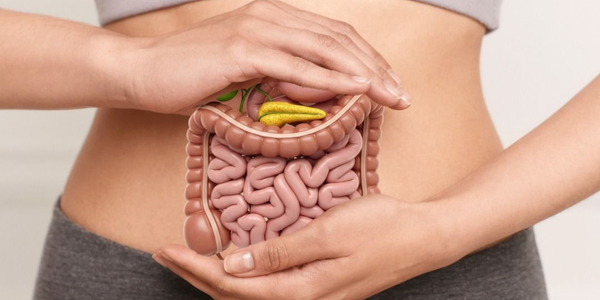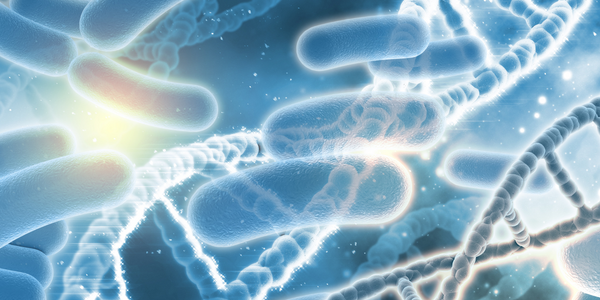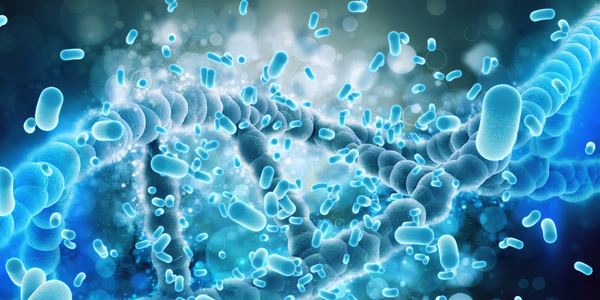How to treat constipation naturally?
To have a healthy digestive system and body, it is important to have regular bowel movements. However, due to many reasons such as age, travel, stress, diet, pregnancy, or surgery, this frequency could be affected. People experience constipation when their bowel movements become less regular, and stools become difficult to pass. It is a common digestive issue that affects most people at least once in their lives. While some people may experience this condition in the short-term, there are others who experience chronic symptoms, which means it persists for a longer duration. While there are several over-the-counter medications to treat the symptoms, there are many natural ways to cure constipation at home. Read on to find out what they are.
While there are several over-the-counter medications to treat the symptoms, the best ways to cure constipation include various natural remedies at home. Read on to find out what they are.
Home remedies for constipation
Constipation can impact your physical and mental wellbeing in several different ways. There are many natural remedies for constipation, which are as follows.
-
High-fibre foods
Your daily diet must comprise a healthy quantity of dietary fibre as it is good for gut health. Research suggests that women must consume at least 25 grams of fibre, while men should have at least 38 grams daily. However, due to various reasons, most people are not able to reach their daily requirements. Both insoluble (those that cannot be dissolved in water) and soluble (those that can be dissolved in water) help bulk up your stool. However, if you are constipated, the latter is a better option. Soluble fibre pulls water into your gut that softens your stools and supports regular bowel movements. Some examples are avocados, brussels sprouts, black beans, oat bran, seeds, nuts, lima beans, broccoli, pears, and more.

-
Water
One of the major reasons why someone could be constipated is dehydration. That is why drinking plenty of water and staying hydrated is significant. Ideally, you must drink at least six to eight glasses of water every day.

- Prebiotic and Probiotics
Both prebiotic and probiotic foods available in your kitchen, are great home remedies for constipation. Prebiotics like inulin and oligosaccharides are indigestible carbohydrate fiber that improves digestion by feeding the beneficial bacteria in the gut. Some even help increase the frequentness of bowel movements and make stools softer, such as chicory root, garlic, onions, chickpeas, bananas, and more. On the other hand, probiotics are live, good bacteria that are naturally present in fermented foods like kefir, tempeh, kombucha, yogurt, or also sold in the form of supplements. Probiotics help relieve constipation by increasing short-chain fatty acid production, lessening the colon’s pH, and improving bile salt metabolism
-
Avoid Dairy:
Some people could be intolerant of dairy products. Dairy or lactose intolerance can lead to constipation. If you suspect having lactose intolerance, you can visit your doctor for a diagnosis. The doctor is likely to recommend temporarily or permanently excluding dairy from your diet, and including other calcium-rich foods till the symptoms improve.
-
Laxative Teas:
Laxative teas are a way to help a person to get relief from the symptoms of bloating and also empty their bowels. Usually, they are consumed to alleviate constipation. The teas that are popular for their laxative properties include senna, smooth move, ballerina, peppermint, parsley, marshmallow, chamomile, licorice, black, and green tea, to name a few. Out of all the teas, senna is perhaps the most widely used. According to research, senna leaves and pods contain glycosides that give the digestive system a boost and help alleviate constipation.

-
Exercise Regularly
There’s enough research, which suggests that those who lead a sedentary lifestyle are more prone to get constipated. Perhaps that’s why some healthcare experts suggest exercising daily to improve digestion and regularise bowel movements.
-
A low FODMAP diet
For the uninitiated, FODMAP is the acronym for fermentable oligosaccharides, disaccharides, monosaccharides, and polyols. These are sugar alcohols and short-chain carbohydrates, which are properly absorbed by the body, causing abdominal pain, bloating, and other digestive issues. One of the major symptoms of irritable bowel syndrome (IBS) is constipation. A low FODMAP diet is an elimination process that may relieve constipation. Refined flour, sweeteners, certain fruits and vegetables like lychee and blackberries, and dairy products come under the FODMAP diet.
Apart from this, drinking coffee and other caffeinated beverages, prescription laxatives, green smoothies, salt-water flush, supplements like glucomannan, among other things, are other constipation remedies. However, if you try these natural techniques and still find it difficult to pass stools, it is important to consult with a certified medical practitioner.

You can also try out Wellbeing Nutrition's Probiotic + Prebiotic. It provides support to your digestive health, neutralizes toxins, improves metabolism, and helps prevent other gut-related issues. With 36 billion (CFU) active live cultures per serving your gut microbiome will thrive and be healthy, ridding it of all digestive problems like constipation.
References:
- Sbahi H, Cash BD. Chronic Constipation: a Review of Current Literature. Curr Gastroenterol Rep. 2015 Dec;17(12):47. doi: 10.1007/s11894-015-0471-z. PMID: 26449614. (https://pubmed.ncbi.nlm.nih.gov/26449614/)
- Fernstrand AM, Bury D, Garssen J, Verster JC. Dietary intake of fibers: differential effects in men and women on perceived general health and immune functioning. Food Nutr Res. 2017;61(1):1297053. Published 2017 Mar 23. doi:10.1080/16546628.2017.1297053. (https://www.ncbi.nlm.nih.gov/pmc/articles/PMC5404421/)
- Sabine Nunes Boilesen, Soraia Tahan, Francine Canova Dias, Lígia Cristina Fonseca Lahoz Melli, Mauro Batista de Morais,
Water and fluid intake in the prevention and treatment of functional constipation in children and adolescents: is there evidence?,
Jornal de Pediatria, Volume 93, Issue 4, 2017, Pages 320-327,
ISSN 0021-7557, https://doi.org/10.1016/j.jped.2017.01.005.
(https://www.sciencedirect.com/science/article/pii/S002175571730331) - Ohkusa T, Koido S, Nishikawa Y, Sato N. Gut Microbiota and Chronic Constipation: A Review and Update. Front Med (Lausanne). 2019;6:19. Published 2019 Feb 12. doi:10.3389/fmed.2019.00019. (https://www.ncbi.nlm.nih.gov/pmc/articles/PMC6379309/)
- Eirini Dimidi, Stephanos Christodoulides, Konstantinos C Fragkos, S Mark Scott, Kevin Whelan, The effect of probiotics on functional constipation in adults: a systematic review and meta-analysis of randomized controlled trials, The American Journal of Clinical Nutrition, Volume 100, Issue 4, October 2014, Pages 1075–1084, https://doi.org/10.3945/ajcn.114.089151
- S.E. Martínez Vázquez, J.R. Nogueira de Rojas, J.M. Remes Troche, E. Coss Adame, R. Rivas Ruíz, L.F. Uscanga Domínguez,
The importance of lactose intolerance in individuals with gastrointestinal symptoms, Revista de Gastroenterología de México (English Edition), Volume 85, Issue 3, 2020, Pages 321-331,
ISSN 2255-534X, https://doi.org/10.1016/j.rgmxen.2020.03.002.
(https://www.sciencedirect.com/science/article/pii/S2255534X20300426) - Senna – A Medical Miracle Plant, D. Balasankar, K. Vanilarasu, P. Selva Preetha, S.Rajeswari M.Umadevi, Debjit Bhowmik, Journal of Medicinal Plants Studies, Year: 2013, Volume: 1, Issue: 3, First page: (41) Last page: (47), ISSN: 2320-3862, Online Available at www.plantsjournal.com. (https://www.plantsjournal.com/vol1Issue1/Issue_may_2013/5.pdf)
- Sharma A, Rao S. Constipation: Pathophysiology and Current Therapeutic Approaches. Handb Exp Pharmacol. 2017;239:59-74. doi: 10.1007/164_2016_111. PMID: 28185025. (https://pubmed.ncbi.nlm.nih.gov/28185025/)
- The low-FODMAP diet for irritable bowel syndrome: Lights and shadows, Javier Molina-Infantea, Jordi Serrab, Fernando Fernandez-Bañaresc, Fermín Mearine, Gastroenterología y Hepatología, (https://www.elsevier.es/en-revista-gastroenterologia-hepatologia-14-articulo-the-low-fodmap-diet-for-irritable-S0210570515002216)
- Tatsuya Nakayama, Kazunori Oishi, Influence of coffee (Coffea arabica) and galacto-oligosaccharide consumption on intestinal microbiota and the host responses, FEMS Microbiology Letters, Volume 343, Issue 2, June 2013, Pages 161–168, https://doi.org/10.1111/1574-6968.12142 (https://academic.oup.com/femsle/article/343/2/161/501499#)





























Leave a comment